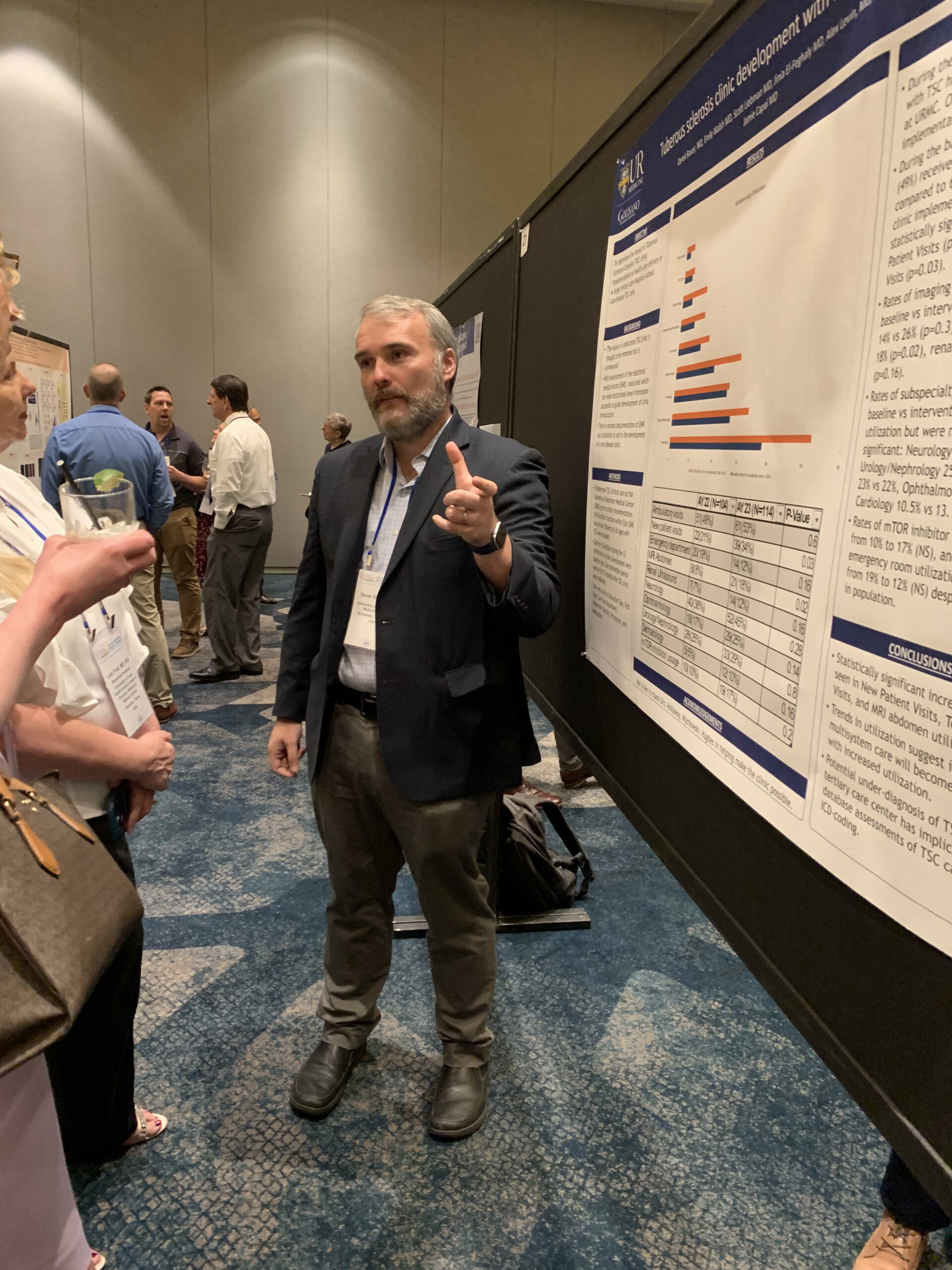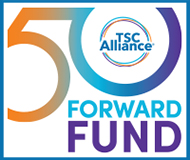 Derek Bauer, MD, has a unique connection to the individuals he cares for at the University of Rochester Medical Center’s TSC clinic: he shares the same diagnosis. He learned he had tuberous sclerosis complex (TSC) at age twelve, after experiencing odd skin bumps on his nose. As an infant, he had had seizures in reaction to medications and vaccines, but the symptoms were not directly attributed to TSC.
Derek Bauer, MD, has a unique connection to the individuals he cares for at the University of Rochester Medical Center’s TSC clinic: he shares the same diagnosis. He learned he had tuberous sclerosis complex (TSC) at age twelve, after experiencing odd skin bumps on his nose. As an infant, he had had seizures in reaction to medications and vaccines, but the symptoms were not directly attributed to TSC.
Dr. Bauer’s personal experience with TSC informs his work every day. “You cannot take for granted that mild cases aren’t severely impacted. There are many people with TSC that have significant non-neurological burden that can be equally as detrimental to their own personal experience, and impact their families as well. Having that understanding is important.”
Another part of the adult TSC experience, he says, is how to navigate life and figuring out family planning and other issues involving physical intimacy. “This is a huge issue that has not really been reported on until recently.”
Dr. Bauer’s clinic is a site for the TSC Alliance’s Natural History Database, a critical source of data for TSC research. He is currently studying the impact of developing a TSC clinic in areas that have limited access to experts in the disease. “We want to know the real-world impact of bringing TSC care in a consolidated, intentioned way, and how that relates to patient care, and rates of emergency room visits for the TSC population.” He feels TSC research is at the precipice of great discoveries. “The TSC Alliance has built a robust infrastructure for research. It’s a critical time for research funding. There’s so much intersection between industry, academia and the community through the TSC Alliance that funding can have a much more profound impact now than five years ago — or waiting five years into the future.”
One reason Dr. Bauer joined the TSC Alliance Board of Directors was to give voice to the adult experience of navigating TSC. “The other part is just the uniqueness of being a patient and understanding the science and medical aspects of TSC.”
Derek Bauer says he’s always willing to discuss his own experience navigating a TSC diagnosis with employment and work. “When it comes to TSC, I’m an open book. It’s important to spread the word and understanding of TSC. Everyone’s experience is different.” He knows all too well how adults with TSC struggle with career planning and relationships. Those who experience seizures have an extra complexity – the stigma associated with a seizure diagnosis, and its impact on a relationship. “It takes an individual approach to navigate how to disclose it, what to disclose, and when to disclose it.” Other concerns are sleep disruption, fatigue, and generally low energy that can be the side effect of medication. Read more about a recent research study on TSC and intimacy here.
Every day, individuals with TSC and their families help drive his decisions on clinical care. “Parents of children with a new diagnosis want to know the right time to start medication. On the other side, the adult with TSC may have been on mTOR inhibitors for years, and things are settling down, their symptoms have been stable. When is the right time to deescalate or stop? That’s always a hard question to answer. It is a balance of risk and benefits of intervention with mTOR inhibitors, earlier versus later on with different symptoms.”
Help the TSC Alliance accelerate TSC research by donating to the 50 Forward Fund!
